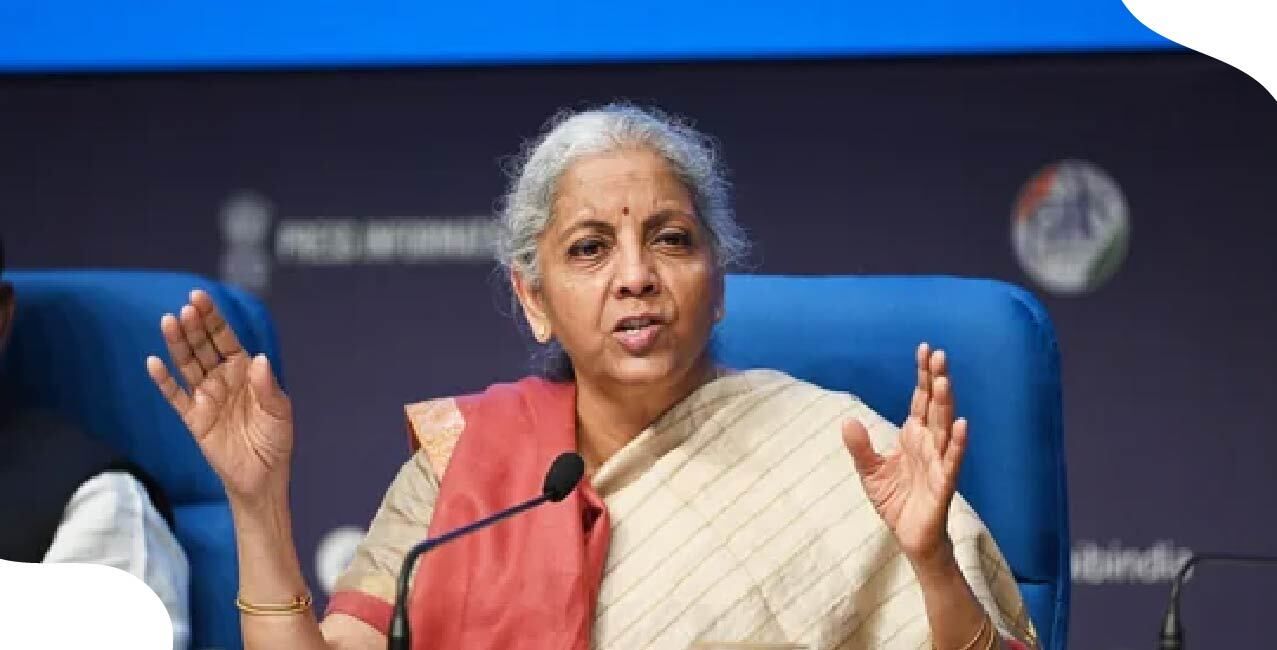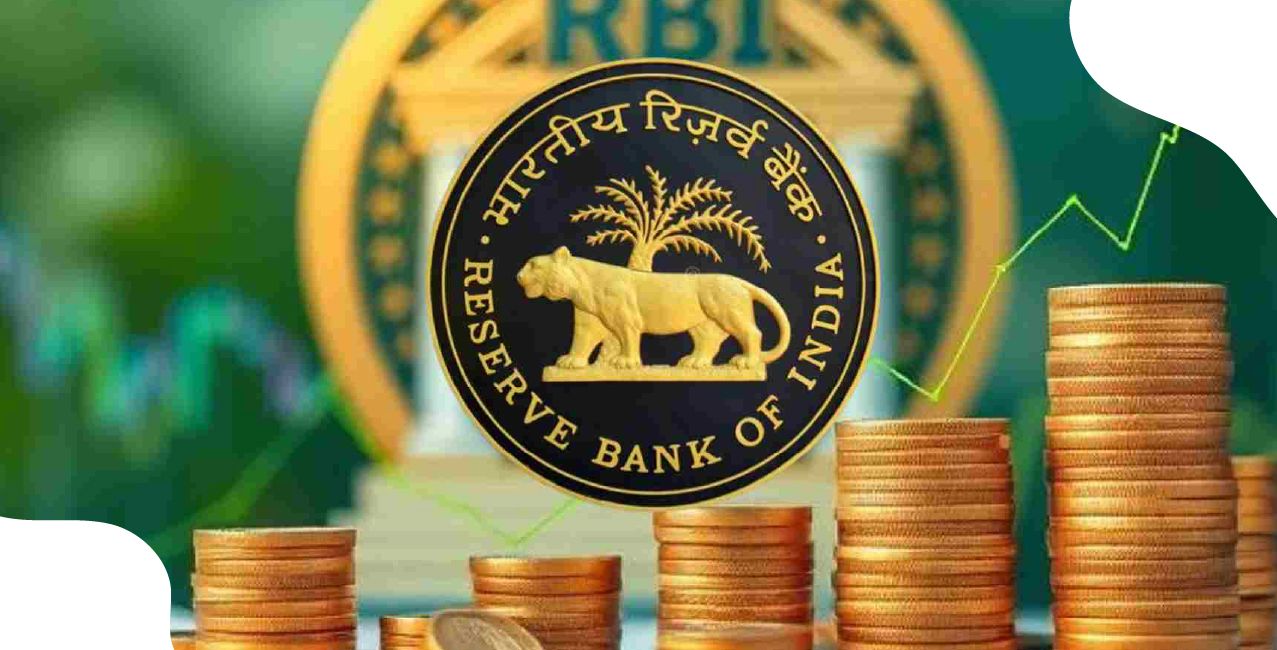
Author
LoansJagat Team
Read Time
5 Min
31 Aug 2025
FM Nirmala Sitharaman: NBFCs Must Ensure Fair, Respectful Loan Recovery Practices
Loan agents must not threaten customers for a ₹500 default, says Finance Minister at NBFC Symposium 2025
How small is too small when being harassed for a loan? For many borrowers across India, even a ₹500 default has meant public shame, asset seizure, or worse. That is the concern Finance Minister Nirmala Sitharaman raised during the NBFC Symposium in New Delhi in July 2025.
In a clear message directed at Non-Banking Financial Companies (NBFCs), the Finance Minister criticised the loan recovery practices used against low-income borrowers. She stressed that any default, no matter how small, must be dealt with using empathy and respect, and fully aligned with the Reserve Bank of India’s (RBI) Fair Practices Code.
The comments come as NBFCs have nearly doubled their outreach and assets in the past four years.
Recovery Tactics Under the Scanner
During her address, Sitharaman shared examples where agents reportedly resorted to humiliating measures to recover petty dues. Some involved seizing daily-use items, while others included verbal abuse at the borrower’s workplace. She said these were unacceptable and against the spirit of financial inclusion.
She reminded NBFCs that such acts are punishable under RBI rules. Firms must implement proper training, internal audits, and customer grievance systems to address these issues before they spiral out of control.
“Even a ₹500 loan cannot justify disrespectful recovery,” Sitharaman told the industry gathering. The comment was not symbolic; several NBFCs now offer digital microloans as low as ₹300 to gig workers, vendors, and homemakers.
Growth in NBFC Asset Book (as per Ministry of Finance, 2025)
Source
This rapid growth has also changed the nature of risks in the system. In the next section, the focus shifts to lending transparency.
Read More – What is an NBFC? Meaning, Functions, Types & Importance
Interest Rates Must be Fair and Declared Upfront
Another concern raised was the way NBFCs present their interest rates. Many customers discover hidden charges only after disbursal. Sitharaman said that interest must be fair and clearly communicated at the loan application stage.
She cited cases where NBFCs failed to pass on the RBI’s repo rate cuts to borrowers, increasing the repayment burden unnecessarily. The Finance Minister suggested strict enforcement of rate transparency guidelines.
She also urged NBFCs to make their terms and conditions available in regional languages to prevent confusion and legal disputes.
NBFC Profitability and NPA Trends (RBI Report, 2024)
Lower NPAs suggest improved asset quality, but recovery practices must not suffer. The next part of the event focused on co-lending and the role of NBFCs in priority sector lending.
Banks Alone Cannot Meet Rural Credit Demand
Sitharaman emphasised that NBFCs are no longer “shadow banks” and must act with full accountability. Their role is central in expanding credit access, especially in tier 3 and 4 towns. She encouraged NBFCs to co-lend with banks under the RBI’s Priority Sector Lending (PSL) norms, which ensure credit reaches underserved segments.
According to the Finance Minister, banks often struggle to utilise their PSL quotas. In such cases, they deposit shortfalls with NABARD or SIDBI. She stated that a better approach would be to co-lend directly through NBFCs operating in remote areas.
Bank PSL Shortfall vs NBFC Reach (as per RBI PSL Report, 2024)
This shows a growing gap where NBFCs can serve as an active channel for priority credit. In the next section, Sitharaman addressed the regulatory responsibilities of NBFCs in today’s market.
Governance and Compliance are no Longer Optional
Beyond customer-facing reforms, Sitharaman urged NBFCs to focus on their internal systems. She said good governance was not only about profitability but also about being able to withstand financial stress and legal scrutiny.
NBFCs must align their risk, audit, and liquidity systems with bank-grade norms. Smaller firms, too, must comply with RBI’s updated regulatory framework issued in October 2022. The goal is to make the financial system safer, especially after the lessons of past failures involving large NBFCs.
Also Read - What Happens If You Default On A Personal Loan?
Regulatory Framework Implementation Timeline (RBI Circular Oct 2022)
This implementation is expected to ensure system-wide stability.
Report Released During the Event
During the symposium, the Ministry of Finance released its annual “NBFC Sector Monitoring Report 2025.” The report confirmed the doubling of the loan book in just four years and highlighted rising co-lending partnerships between NBFCs and banks. It also noted the increase in borrower complaints related to miscommunication and unregulated recovery agents.
This formed the base of Sitharaman’s address and gave weight to her remarks.
Conclusion
The Finance Minister’s message was clear, as NBFCs expand their reach and profit, they must also expand their responsibility. Treating borrowers with dignity, publishing clear terms, and improving compliance are not separate from growth. They are part of it.
With ₹48 lakh crore in outstanding credit and nearly 700 districts in their network, NBFCs now carry the same public expectations as banks. How they handle that pressure will shape the future of lending in India.
About the Author

LoansJagat Team
‘Simplify Finance for Everyone.’ This is the common goal of our team, as we try to explain any topic with relatable examples. From personal to business finance, managing EMIs to becoming debt-free, we do extensive research on each and every parameter, so you don’t have to. Scroll up and have a look at what 15+ years of experience in the BFSI sector looks like.

Quick Apply Loan
Subscribe Now
Related Blog Post

LoansJagat Team • 05 Jan 2026

LoansJagat Team • 05 Jan 2026

LoansJagat Team • 31 Dec 2025